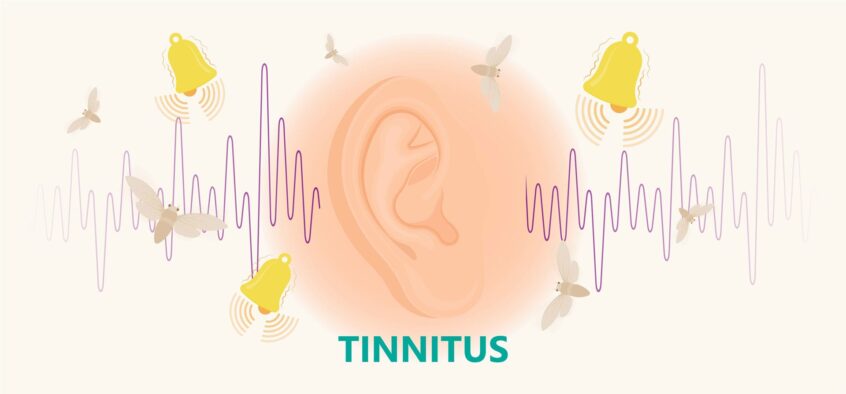You’ve just gone to a concert where the volume seemed over-the-top. When you returned home, you noticed a constant high-pitched hissing noise that didn’t stop. A few days later, you continued to notice the annoying hissing, especially when it’s quiet, like when you would lie down to go to sleep at night. You could live with it, but you hadn’t noticed it before the concert. What is that sound and why hasn’t it gone away?
What you’re hearing is likely tinnitus. Tinnitus is the perception of sound when no external sound source is present. Tinnitus can take on any number of characteristics and is usually a sound that only you can hear.
You can experience tinnitus that varies from soft to loud and from low to high pitched. Individuals describe their tinnitus in a number of ways, including buzzing, clicking, crickets chirping, ringing, white noise, a roaring sound, and in this case, hissing. Although these descriptions are typical, there are no specific rules about how tinnitus is perceived. Each person’s experience can be different.
How common is tinnitus?
According to the American Tinnitus Association (ATA), tinnitus is one of the most common health conditions in the United States, affecting approximately 45 million Americans to some degree. An estimated 20 million have symptoms severe enough that they seek medical attention, and approximately 2 million cannot function “normally” on a day-to-day basis.
What causes tinnitus?
Most often, tinnitus is caused by a change in auditory function. This change may result from exposure to excessively loud sounds, like the concert mentioned, or fireworks or gunshots or loud machinery; chronic diseases like diabetes; or medications that damage the ear. Tinnitus can also be caused by something as simple as impacted ear wax. In rare cases, tinnitus may be associated with other underlying medical conditions.
When should I pursue help?
If you find your tinnitus is particularly bothersome, you should seek help. If your condition is affecting your quality of life by reducing your sleep, affecting your performance at work, making tasks in your everyday life less enjoyable, or reducing your ability to concentrate, you may benefit from some sort of intervention. Above all, don’t accept that nothing can be done for tinnitus.
How is tinnitus managed?
It’s important to understand that there is no cure for tinnitus to date. If you search for tinnitus cures on the internet, you’ll find ads for all sorts of things—from vitamins and supplements to devices that claim to stop the tinnitus. Though these items might not harm you, they don’t work and they can cost you hard-earned dollars that don’t bring relief.
Instead, it’s important to work with a doctoral-level audiologist or physician to determine the best course of action for you. There are many management options for tinnitus, so if you are told that you have no options for managing your tinnitus, or that you have to “learn to live with it,” then you should immediately seek a second opinion from a hearing health professional with training in tinnitus management.
Associated Audiologists features a doctoral-level audiologist with expertise in managing tinnitus. She works with each individual patient to create a tinnitus management plan customized to their specific issues and needs. Management utilizes a wide variety of sound therapy techniques and tools, such as behavioral therapy, hearing aids, and the most recent FDA-cleared management systems that are clinically proven to offer long-term relief.
To see if you may have tinnitus, take our quiz. If you answer “yes” to one or more of the questions, schedule an appointment with one of our doctoral-level audiologists.
For more information on tinnitus, visit the American Tinnitus Association or watch this video on tinnitus.



